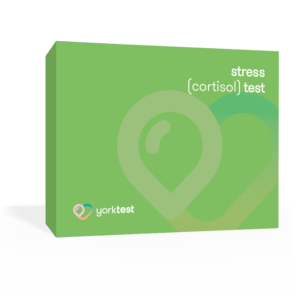They may not always look so appealing, but fish is one of nature’s most nutritious foods. Whilst all fish is great as part of a balanced diet, it’s the oily varieties you really want to look at for the greatest health benefits. This is because, unlike with white fish, their heart healthy fats are distributed through their flesh rather than concentrated in the liver. Oily fish such as Trout, salmon, sardines and mackerel are packed full of heart strengthening fatty acids like Omega-3, whilst also being a great source of fat soluble vitamins A, D, E and K.
If you want to see the real benefits a fish heavy diet can have, just take a look around the world. Japan, an island nation that has traditionally looked to the sea to provide sustenance, has one of the highest life expectancies on earth. The Eskimo of Greenland, for whom fish makes up a large part of a daily diet, have lower instances of heart disease, blood pressure and strokes than the world average.
Whilst the positive health effects of a fish based diet are clear, some may find it hard to reap these benefits. Some people may find that eating fish can make them feel unwell, leading them to exclude the food and its positive health effects from their diet. A bad reaction to fish could be caused by fish allergy or fish intolerance. Whilst both these conditions can cause severe discomfort, it can be easy to feel confused or even sceptical about fish intolerance or allergy, especially if you’re unaware of the symptoms.
To help you properly understand the differences between the two problems, we’ve put together a guide to the causes, symptoms, and treatments of fish intolerance and fish allergy.
What is a fish allergy?
Whilst the majority of people can eat fish without any adverse health effects, sufferers of fish allergy physically reject the food. This is caused by the body’s reaction to a protein present in the fish, which for allergy sufferers is identified as an intruder, in turn triggering an immediate immune response.
Depending on the severity of the allergy, fish may not necessarily have to be consumed for symptoms to occur. For some merely touching fish may cause an adverse reaction. For a small proportion of allergy sufferers, steam caused by cooking fish can cause a flare up, as can products containing fish, like Worcestershire sauce, surimi, and even certain beers!
It’s important to note that a fish allergy and shellfish allergy are two completely different conditions; it’s possible to be allergic to finned fish, but not to prawns, oysters or crustaceans.
What are the symptoms of fish allergy?
Like most allergies, fish allergy symptoms differ in severity from person to person. It’s common for a combination of symptoms to occur, but some people may only exhibit any one of the known symptoms, which include:
- Skin rash
- Headaches
- Runny nose sneezing
- Nausea
- Stomach cramps
- Diarrhoea
- Anaphylaxis – can cause impaired breathing, and be life threatening.
Fish allergy symptoms have the ability to be life threatening, so if you find yourself suffering any of the above problems and think fish may be the cause, you should consult a healthcare professional as soon as possible.
What is a fish intolerance?
An intolerance isn’t always necessarily something a person will have for life. It’s common for a person to be able to eat fish with no problem for years, but to suddenly find that the food makes them feel unwell.
However, unlike allergy, a fish intolerance occurs only when the fish is eaten, not just handled and an immune response occurs although a person may find eating one variety of fish has no adverse health effects, whereas eating another causes discomfort and illness; salmon may be fine, whereas tuna may not.
Whilst fish allergy symptoms are generally exhibited shortly after eating the trigger food, symptoms of fish intolerance can take between a few hours to a few days to take place; something that can lead sufferers trying to self-diagnose into blaming the wrong food.
What are the symptoms of fish intolerance?
Symptoms of intolerance are generally less severe than those of allergy. However, this isn’t to say they don’t have the ability to cause great discomfort. Common fish intolerance symptoms include:
- Stomach upset & cramps
- Bloating
- Nausea
- Diarrhoea
- Headaches
- Skin rash
As with allergies, not all these symptoms may be present at one time.
What should I do if I think I have a fish intolerance or allergy?
As with all potential allergies, consulting a doctor or registered healthcare specialist should be your first port of call. This could help you to find out if your symptoms are due to an underlying health condition, and could help you to diagnose whether potential future flare ups have the likelihood to be life threatening.
If you think an intolerance might be the cause, it’s important not to cut out any food without proper advice. Whilst intolerance can be extremely difficult to live with, removing a nutrient rich food like fish without proper guidance or suggestions for replacement foods could have equally detrimental effects on your health. A test and nutritional consultation from YorkTest could help you make the right decisions to optimise your diet, so if you do need to cut out fish, you can do so in a healthy way. It may even turn out that your intolerance only involves one type of fish, meaning you can avoid this whilst still getting the benefits of other varieties. Plus, as fish intolerance isn’t always lifelong, it might be only a matter of time until you’re enjoying fish Fridays again.














